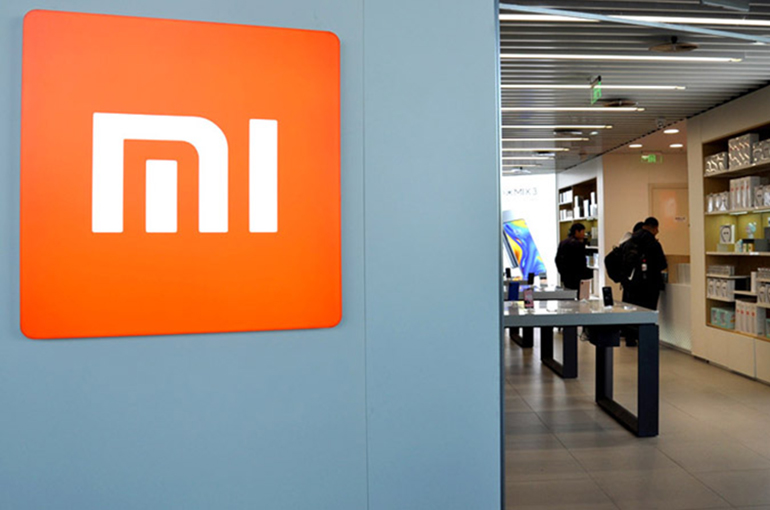 Xiaomi’s Founder Hails Record Annual Earnings as Chinese Tech Titan’s ‘Strongest Ever’ Results
Xiaomi’s Founder Hails Record Annual Earnings as Chinese Tech Titan’s ‘Strongest Ever’ Results(Yicai) March 19 -- Xiaomi has reported record earnings for last year, with founder and Chief Executive Lei Jun describing the results on social media as the “strongest annual report ever” from the Chinese maker of consumer electronics and electric cars.
Net profit jumped 35 percent to CNY23.6 billion (USD3.3 billion) in the 12 months ended Dec. 31, the Beijing-based company said yesterday, while adjusted net profit soared 41 percent to CNY27.2 billion. Revenue also jumped 35 percent to CNY365.9 billion (USD50.6 billion).
The bulk of Xiaomi’s revenue was generated by sales of smartphones and other consumer electronics, but the firm’s electric vehicle and other innovative businesses started to contribute to earnings after its first car was launched last March. Income from mobile phone sales accounted for more than 52 percent of revenue, while smart EVs made up 9 percent.
“This has been a milestone year for Xiaomi,” President Lu Weibing said on Xiaomi’s earnings conference call. “We have stepped onto the fast track of growth with our mobile phone, automobile, IoT, and other businesses advancing in parallel.”
Fourth-quarter profit soared over 90 percent from a year ago to CNY9 billion, while adjusted profit surged 69 percent to CNY8.3 billion, Xiaomi also said. Revenue climbed 50 percent to CNY109 billion.
Xiaomi’s shares [HKG: 1810] closed almost 1 percent higher at HKD58.20 (USD7.61) each in Hong Kong today, after swinging between a gain of as much as 3.1 percent and a drop of 2.2 percent. The stock has more than quadrupled in value in the past 12 months, gaining momentum this year amid a broader rally in Chinese stocks.
Annual Earnings Close-Up
Revenue at Xiaomi’s smartphone business jumped 22 percent to CNY191.8 billion last year, with a gross profit margin of 12.6 percent, while its global phone shipments climbed nearly 16 percent to 168.5 million units.
According to data from market research firm Canalys, Xiaomi remained among the top three global smartphone vendors by shipments for the 18th consecutive year in 2024, with a market share of 13.8 percent, up from 12.8 percent the year before.
Xiaomi raised its handset shipment target for this year to 180 million, a step closer to the 200 million milestone, Lu said. He predicted that China's smartphone market will polarize in the next three to five years, with leading brands growing stronger. Xiaomi aims to increase its market share by 1 percentage point a year.
Revenue from the Internet of Things and lifestyle products business rose 30 percent to CNY104.1 billion, exceeding the CNY100 billion mark for the first time. Its gross profit margin increased to 20.3 percent from 16.4 percent. Smart large home appliances maintained robust growth, as air conditioner, refrigerator, and washing machine shipments reached new records.
Revenue and gross profit margin at the internet services business also set new records, gaining 13 percent to CNY34.1 billion and swelling 76.6 percent from 74.1 percent.
The smart EV and other new initiatives segment generated revenue of CNY32.8 billion, 98 percent of which came from Xiaomi’s smart EV division. The segment logged a gross profit margin of 18.5 percent, with the adjusted net loss narrowing 7 percent to CNY6.2 billion (USD857.2 million).
Xiaomi delivered 136,854 SU7 vehicles in the first year as of Dec. 31, with the average selling price reaching CNY234,479 (USD32,420) per unit. The company set its annual sales target for this year at 350,000.
R&D, AI Investments
Xiaomi’s research and development expenses surged 26 percent to CNY24.1 billion last year. As of the end of December, the firm had over 42,000 patents worldwide, including more than 1,000 in EV-related technologies.
Regarding investment in artificial intelligence, Lu said that Xiaomi will continue to invest in AI-related technologies, including language large models, vision large models, and multimodal large models. Smart driving and smart cockpits could become important AI application scenarios in the future, he noted.
Editor: Futura Costaglione